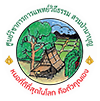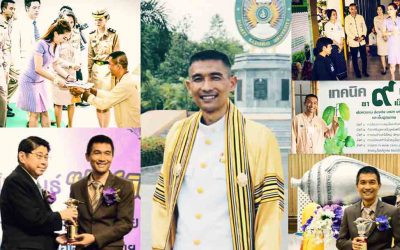รายงานกรณีศึกษา (Case Report) มะเร็งมะเร็งรังไข่
เรือนแก้ว สว่างวงษ์,นิตยาภรณ์ สุระสาย
Ruenkaew Swangwong
บริหารธุรกิจมหาบัณฑิต มหาลัยบูรพา
วารสารวิชาการวิชชาราม
ปีที่ 2 ฉบับที่ 6 กันยายน ถึง ธันวาคม 2562
บทคัดย่อ
มะเร็งรังไข่ (ovarian cancer) เป็นมะเร็งอวัยวะสืบพันธุ์ที่พบมากเป็นอันดับที่ 7 ของ มะเร็งสตรีทั่วโลก และพบเป็นอันดับที่ 6 ของมะเร็งสตรีในประเทศไทย ประเทศไทยพบผู้ป่วยรายใหม่มากกว่า 2,600 รายในปี พ.ศ. 2556 หรือมากกว่าครึ่งหนึ่งที่ต้องเสียชีวิตจากโรคนี้ ซึ่งค่าเฉลี่ยในแต่ละวันพบสตรีไทยเสียชีวิตจากโรคมะเร็งรังไข่ ประมาณ 4 ราย โดยผู้ป่วยมักมาพบแพทย์ในระยะลุกลามแล้วเป็นส่วนใหญ่ และสามารถตรวจพบมะเร็งรังไข่ได้ทุกช่วงอายุ ตั้งแต่ 20 – 80 ปี โดยส่วนใหญ่อยู่ในช่วงอายุ 50 – 60 ปี (ข้อมูลบางส่วนจาก www.bangkokhospital.com)
หญิงไทย อายุ 50 ปี พบว่ามีอาการเป็นลม อ่อนเพลีย หลังจากถูกนำส่งโรงพยาบาลแห่งหนึ่งในนครเซี่ยงไฮ้ ประเทศจีน แพทย์ตรวจพบว่ามีเนื้องอกแตกในช่องท้อง มีเลือดออกในช่องท้องจำนวนมากประมาณ 3 ลิตร แพทย์ต้องทำการผ่าตัดก้อนเนื้องอกในรังไข่และปีกมดลูกด้านซ้ายออกฉุกเฉินเพื่อช่วยชีวิต เมื่อผ่าตัดเข้าไปพบว่ามีเนื้องอกลุกลามในช่องท้องอีก 3 ก้อน ในตำแหน่งผนังมดลูก กระเพาะปัสสาวะ ลำไส้ใหญ่ส่วนปลาย แต่ไม่สามารถผ่าตัดออกได้ในขณะนั้นเพราะร่างกายผู้ป่วยไม่พร้อม และไม่มีแพทย์ผู้เชี่ยวชาญเฉพาะทาง หลังการผ่าตัดครั้งแรกแพทย์แนะนำให้ทำการผ่าตัดอีกครั้งภายใน 1 เดือน เนื่องจากยังมีเนื้องอกในช่องท้องทั้ง 3 ก้อนยังไม่ได้ผ่าตัด ผลตรวจชิ้นเนื้อจากการผ่าตัดรังไข่และปีกมดลูกด้านซ้ายครั้งแรกพบว่าเป็นมะเร็งชนิด Borderline mucinous ovarian tumor หลังจากนั้น 1 เดือนเข้ารับการผ่าตัดครั้งที่ 2 เพื่อเอาเนื้องอก 3 ก้อนที่เหลือในช่องท้องออก ผลการตรวจชิ้นเนื้อในครั้งนี้สรุปว่าเป็นมะเร็งรังไข่ ระยะ 3A ลุกลามในช่องท้องค่าบ่งชี้มะเร็ง CA 19-9 สูงเกินมาตรฐานประมาณ 10 เท่า หลังการผ่าตัดผู้ป่วยปฏิเสธการรับเคมีบำบัด แต่ตัดสินใจมาค่ายสุขภาพแพทย์วิถีธีธรรม
หลังการผ่าตัด 28 วัน ซึ่งขณะนั้นยังมีอาการท้องบวม อวัยวะเพศบวม อ่อนเพลีย หลังการเข้าค่ายสุขภาพแพทย์วิถีธรรม 3 ค่ายครั้งละ 9 วัน โดยมุ่งมั่นเรียนรู้และปฏิบัติตามเทคนิค 9 ข้อ ถือศีล 5 หมั่นฟังธรรมะ ทำใจยอมรับการป่วยด้วยใจที่เบิกบาน ไม่โกรธ ไม่กลัวเป็น ไม่กลัวตาย ไม่กลัวโรค ไม่เร่งผล ไม่กังวล เป็นเวลา 2 เดือน ไปพบแพทย์แผนปัจจุบันเพื่อตรวจเลือดติดตามผล พบว่าค่าบ่งชี้มะเร็ง CA 19-9 เท่ากับ 161 HU/mL (ลดลงจากเดิมก่อนเข้าค่าย 183 HU/mL) และผลการตรวจ เอ็กซเรย์คอมพิวเตอร์ (CT Scan) ปกติ ไม่พบการลุกลามของมะเร็งไปยังอวัยวะต่าง ๆ และหลังจากนั้นได้มีการตรวจติดตาม เอ็กซเรย์คอมพิวเตอร์ (CT Scan) ปีละ 1 ครั้ง ในเวลา 2 ปี ไม่พบความผิดปกติ และผลการตรวจผลเลือดค่าบ่งชี้มะเร็ง CA19-9 ลดลงจนถึงปัจจุบันอยู่ในระดับมาตรฐานของคนปกติ ผู้ป่วยรู้สึกสบายกาย สบายใจ ไม่อ่อนเพลีย สามารถดำเนินชีวิตได้อย่างมีความสุขอีกครั้ง และตัดสินใจออกจากงานมาเป็นจิตอาสาทำงานช่วยเหลือผู้ป่วยรายอื่น ๆ กับกลุ่มจิตอาสาแพทย์วิถีธรรม
คำสำคัญ : มะเร็งรังไข่, แพทย์วิถีธรรม, เทคนิค 9 ข้อหรือยา 9 เม็ด
ABSTRACT
Ovarian cancer is the 7th most common form of female reproductive cancer in the world. In Thailand, it is the 6th most common form of cancer found in female cancer patients. In 2013 alone, there were more than 2,600 new cases of ovarian cancer. More than half of the patients loss their lives due to the disease. On average, 4 women in Thailand die each day because of the disease. Most patients have advanced stages of ovarian cancer when first diagnosed with the condition. While ovarian cancer occurs in women between the age of 20 – 80, most ovarian cancer patients are between 50 – 60 years old. (Some of the information is from www.bangkokhospital.com).
A 50-year old woman, felt faint and weak. She was sent to a hospital in Shanghai, China. It was found that a tumor had ruptured in her lower abdomen. She had internal bleeding and had lost 3 liters of blood. She underwent emergency surgery to remove tumor in her ovaries and left fallobian tube. During the surgery, the surgeon found 3 additional tumors in her uterus, bladder, and large intestine which could not be removed due to the patient’s conditions and lack of available specialists.
After the emergency surgery, the doctor recommended a second surgery to remove the remaining tumors within 1 month. A biopsy revealed that the tumors were borderline mucinous ovarian tumor. The second surgery to remove the remaining 3 tumors occurred after a month of the first surgery. The biopsy, this time, confirmed that she had stage 3A ovarian cancer. Her tumor marker, CA 19-9 was 10 times the normal range. After her second surgery, the patient refused chemotherapy. She decided to attend the Buddhist medicine camp 28 days after her second surgery. Her abdomen and sexual organs were still swollen. She was feeling weak.
After attending 3 buddhist medicine camps for a period of 9 days each, she strictly followed the 9 pill technique, observed the five buddhist precepts, and listened to dharma regularly.
For two months, she accepted her conditions with open heart, without anger, worry, fear, haste, nor anxiety. When she returned to modern medicine for a check up, it was found that her tumor marker CA 19-9 was 161 HU/mL (down from the value measured before attending the camps at 183 HU/mL). Furthermore, the CT Scan revealed that there was no further growth of the cancer to other organs.
In the following 2 years, no abnormalities were found during annual CT scan. Her CA 19-9 levels had returned to normal. The patient felt comfortable and no longer feels weak. She can carry on with her daily lives but decided to quit her job and join the Buddhist medicine group as a volunteer.
Keyword: Ovarian cancer, Buddhist medicine, 9-pill technique
วิธีใช้ Embed PDF
- กรุณากดลูกศร ซ้าย-ขวา ในการเปลี่ยนหน้า
- ถ้าหากตัวอักษรเล็ก-ใหญ่เกินไป กรุณากดเครื่องหมาย บวก-ลบ เพื่อปรับขยาย-ลดตัวอักษร


